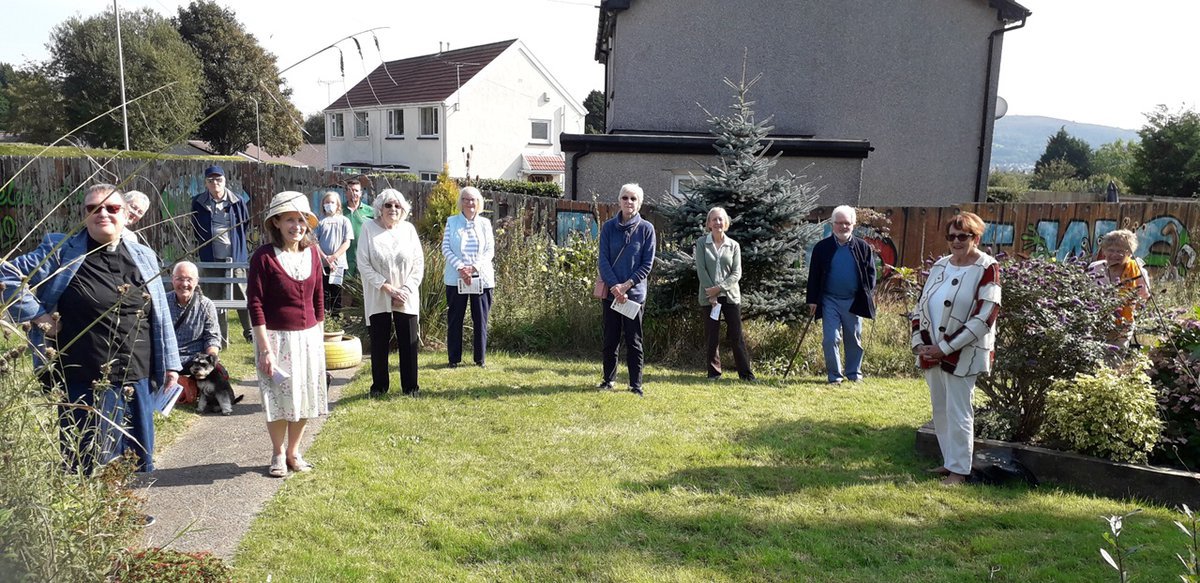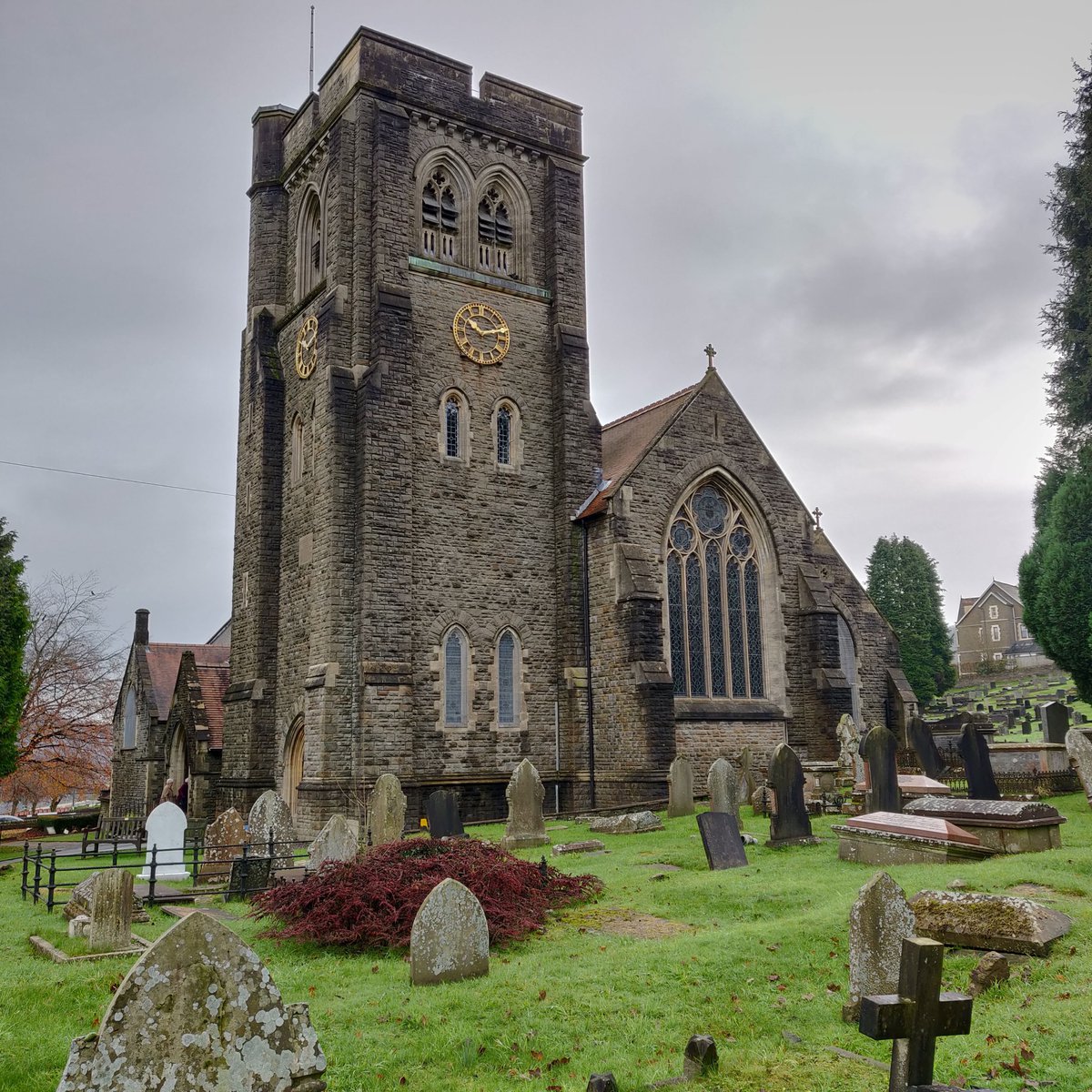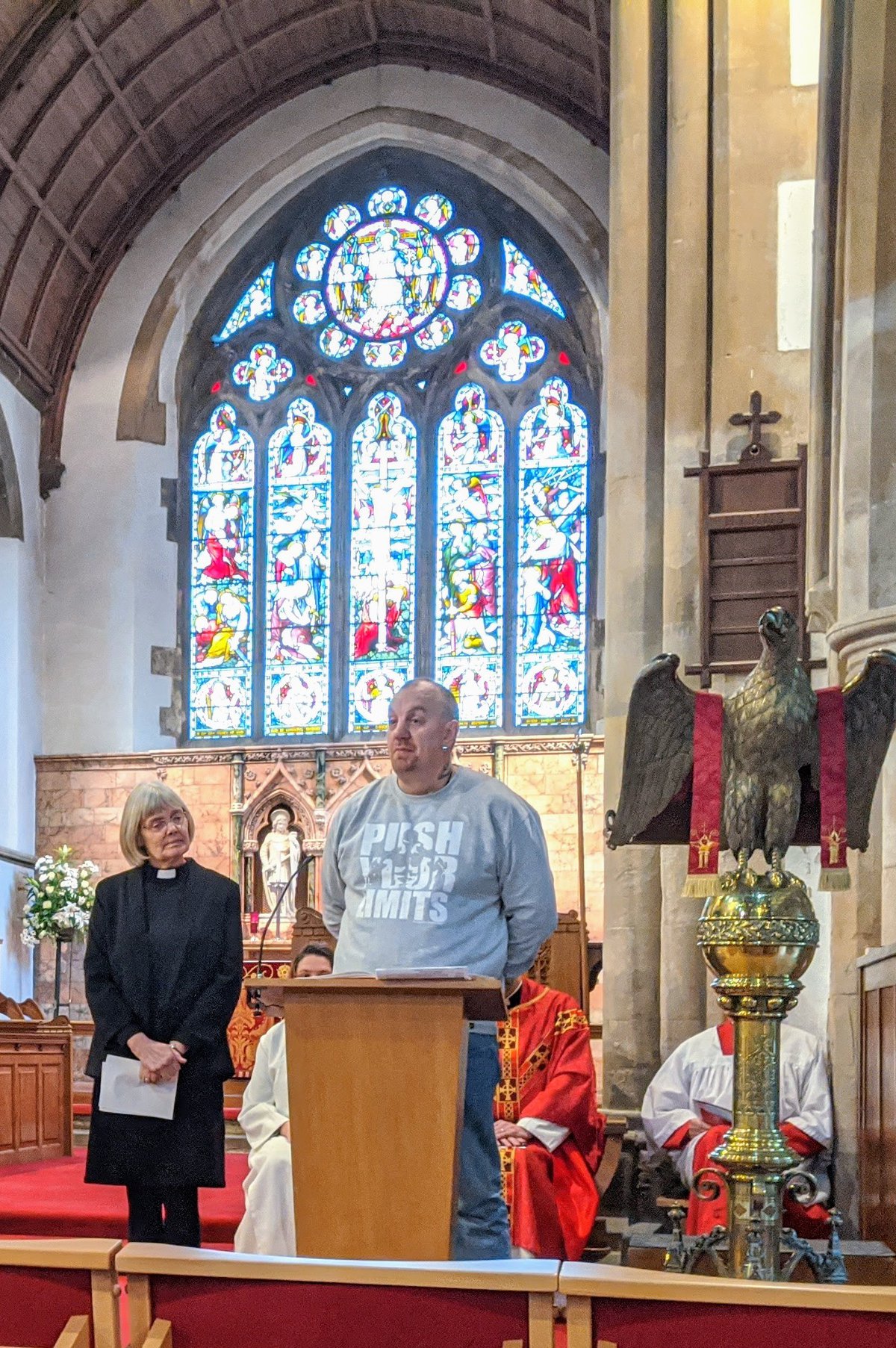Ministry Areas: A View from Eglwysilan and Caerphilly
At September's Diocesan Conference we announced plans to accelerate the formation of Ministry Areas. Here, Deryn McAndrew, Warden and Treasurer for Benefice of Eglwysilan and Caerphilly, tells us why she is passionate about the benefits of forming Ministry Areas.
Leading with trust

The Benefice of Eglwysilan and Caerphilly has been defined as a ministry area for some time, but the journey began probably back in 2013, when we brought together the three Caerphilly churches into one parish.
Our Ministry Area Leader is our Rector, Mark Greenaway-Robbins, and as benefice warden and Treasurer, I deputise for him in his absence. This is becoming more necessary now that he is working part-time.
Our Ministry Area Leadership Team are called “The MALT” (because we like mnemonics in Caerphilly). It consists of all the clergy in the Benefice, plus the two wardens and full time paid administrator. Ruth James, our ordinand (who comes from Monmouth, and has lots of experience of church life and the law) has remarked on the many benefits of this way of working, when it is done well. We find it a strength and blessing – working collaboratively, building on individual strengths and passions, to share out the workload and find opportunities for us all to grow.

Since the start of the pandemic the team has started each day of the working week in a MALT meeting to handle issues, plan pastoral care, and develop a communication strategy and platforms, including a new website. This investment in time makes sure that we are all “on the same page”, and can respond quickly to need.
Building a team in trust and confidence with each other takes a lot of work, but our Rector is passionate about this, and his leadership has helped us through. We don’t always agree, but when we cannot do so, we share our feelings and pray on it overnight – and have never failed to come back the next day with agreement to a way forward.
Keeping things together takes a lot of work, and our administrator, Nerys Beckett, has been indispensable. Her role is to develop and run the following:
- A database which tracks every parishioner with whom we have contact.
- A new Website which is regularly updated.
- E-mail broadcasts sent out weekly.
- Planning documents, for deployments, leave and liturgy.
- The “Home Resources” monthly publication.
- Keep us o track with actions and deadlines.
Improving financial governance
We have a PCC – defined in the decree which established the Benefice in 2015 with equal representation from each church, no matter how large or small, and this has continued to serve us well. We established an approach to “Voting by e-mail” a few years ago as a complement to meeting in person, and this has come into its own during lockdown. The PCC are often asked to approve actions, give advice on external changes, such as Covid-19, and confirm our response.
We have a church committee for each church – we call them Church Action teams – or CATs (because we like mnemonics in Caerphilly!), and it is here that matters of property maintenance and social/pastoral connectivity are handled. Their size varies from the smallest of 8 members to the largest of 24 – and reflects the workload at each site.
We have single set of accounts – a Benefice account and separate church “cash collection” accounts.
All bills are paid from the central account, with church treasury teams counting cash, banking, and transferring money to the central account monthly. Initially, each church retained its own restricted fabric fund, but last year the PCC reached a point of trust that allowed us to bring these together in a single “Benefice property fund”. This has proved invaluable this year as we try to move forward on vital building work during this difficult time.
The PCC now has the power to assign funds where the work is needed most – assisted by a property sub-group which reports regularly.
Working together to grow the Kingdom of God

MALT enables and supports the work of various groups and ministries – for instance, the Pastoral Visiting Team (who have not been able to visit during the pandemic) has assisted in maintaining telephone contact with our parishioners, and they have been joined by others who cannot commit to visiting, but have been happy to take on a pastoral telephone ministry.
This has been a source of great strength, and has changed the way we perceive pastoral responsibility.
Whereas we used to have a cleric assigned to each separate congregation, we now have a MALT/PVT member assigned to make regular telephone calls to each parishioner, with frequency of calling based on individual need. This is backed up by a cleric who takes responsibility for each person, based on their own personal connection/ knowledge/preference etc. This model was created out of the pressures of maintaining pastoral care during the pandemic, but we believe now that it will serve us well as we resume physical connection.
The key to this is to be prepared to change to meet changing circumstances -we need to be agile enough to respond quickly to change.
Personally, as you can probably tell, I am passionate about the benefits that are possible through this collaborative team working approach, and the trust that has developed over time between the individual churches.
It is so rewarding when an individual church finally realizes that we are all there to help each other and that Benefice working groups can be established to help out in difficult times.
So many people are now saying that they feel informed and included in the working of the Benefice – especially valuable when anxieties are so high in these uncertain times.
Thanks you for your attention, and I hope this has been a helpful view